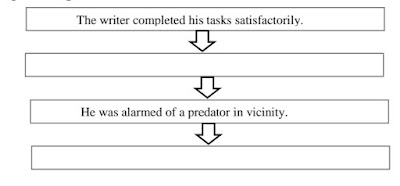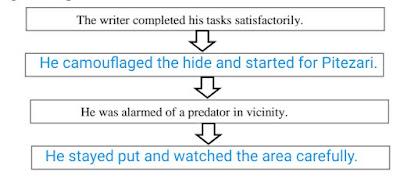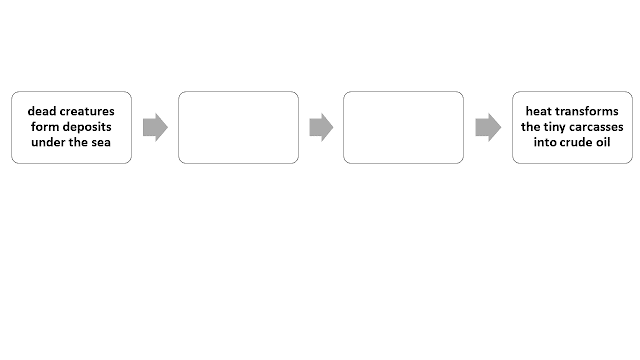acquit
antonyms: arraign, condemn, convict, indict
arrogant
antonyms: humble, meek, modest
attractive
antonyms: forbidding, repellent, repugnant
bright
antonyms: black, dark, dim, dull, murky, shadowy, shady, somber
careworn
antonyms: carefree
cheerful
antonyms: cheerless, dark, dejected, depressed, despondent, disconsolate, dispirited, doleful, down, gloomy, glum, heavy, heavy-hearted, joyless, lugubrious, melancholy, miserable, moody, morose, mournful, sad, saturnine, serious, sulky, sullen, unhappy, woebegone, woeful, wretched
civil
civility
antonyms: disrespect, incivility, rudeness
comfortable
antonyms: embarrassed, ill at ease, uncomfortable, uneasy
conflict
antonyms: accord, agree, coincide, harmonize
convenience
antonyms: inconvenience
courtesy
antonyms: discourtesy, insolence
deep
antonyms: shallow
distant
antonyms: adjacent, close, immediate, near, recent
drab
antonyms: bright, colorful, dashing, garish
dreadful
antonyms: heavenly
elegant
antonyms: cheesy, garish, gaudy, inelegant, ostentatious, shabby, tacky, tasteless, tawdry, vulgar
evil
antonyms: good, goodness
excellence
antonyms: faultiness, inferiority, shoddiness
exterior
antonyms: interior
faint
antonyms: intense, strong, thick
friendly
antonyms: antagonistic, antisocial, baleful, bellicose, belligerent, gruff, hostile, icy, ill, ill-disposed, inhospitable, standoffish, stern, uncongenial, unfriendly, unsociable
harsh
antonyms: dulcet, mellifluous, smooth, soft, subdued, sweet, tender
haughty
antonyms: humble
heavy
antonyms: ethereal, light
honest
antonyms: deceitful, dishonest, insincere, lying
humiliate
antonyms: honor
ignoble
antonyms: noble
import
antonyms: export
innocent
antonyms: corrupt, sinful, wily
insolent
antonyms: deferential, polite
last 1
antonyms: first, front, leading
lasting
antonyms: ephemeral, evanescent, fleeting, short-lived
liberty
antonyms: bondage, constraint, restraint, slavery
luxurious
antonyms: miserable, poor, spartan, wretched
melt
antonyms: freeze, set, solidify
narrow
antonyms: broad, wide
natural
antonyms: artificial, factitious, man-made, preternatural, synthetic, unnatural
neat
antonyms: disorderly, messy, shabby, slovenly, untidy
obscure
antonyms: clear, plain
pleasant
antonyms: acrid, annoying, beastly, dirty, disagreeable, distasteful, dreadful, foul, gruesome, obnoxious, odious, offensive, squalid, stark, tiresome, ugly, unpleasant
polite
synonyms: courteous, gracious, mannerly, well-behaved, well-bred, well-mannered
antonyms: brusque, cheeky, discourteous, disrespectful, ill-mannered, impertinent, impolite, insolent, insulting, nasty, nervy, rude, smart, uncivil, ungracious, unmannerly
public
synonyms: common, communal
antonyms: personal, private, privileged, restricted
radiant
synonyms: bright, effulgent, fulgent, glowing, luminous, refulgent, resplendent, shining
antonyms: dark
reasonable
synonyms: judicious, logical, rational, sensible, sound, well-founded
antonyms: absurd, irrational, unreasonable
refuse 1
synonyms: decline, deny, reject, repel, withhold
antonyms: abide, accept, grant, proffer, provide
refuse 2
synonyms: garbage, junk, rubbish, trash, waste
sensitive
antonyms: impassive, impervious, unresponsive
set
synonyms: lay, place, posit, put
social
synonyms: communal, gregarious
antonyms: solitary
solicitous
synonyms: anxious, attentive, considerate
solitary
synonyms: alone, lone, lonely, only, unaccompanied, unsociable
antonyms: accompanied, gregarious, social
spiritual
synonyms: psychic
antonyms: physical
stale
synonyms: dry, wilted
antonyms: fresh
strange
synonyms: curious, eccentric, funny, odd, peculiar, queer, singular, unusual, weird
antonyms: normal, ordinary, typical, usual
stranger
antonyms: intimate
strong
synonyms: forceful, mighty, powerful, puissant, sturdy, vigorous
antonyms: delicate, feeble, flimsy, frail, puny, sickly, weak, weakly
success
synonyms: smash
antonyms: dud, failure, flop, nonsuccess
superior
synonyms: ranking, senior
antonyms: inferior, junior, subordinate
thick
synonyms: fat
antonyms: diaphanous, gauzy, sheer, thin
tiny
synonyms: diminutive, lilliputian, miniature, minuscule, minute, pint-size, teeny, wee
antonyms: astronomical, colossal, enormous, gigantic, huge, immense, mammoth, massive, mighty, monstrous, mountainous, stupendous, tremendous, vast
tolerable
antonyms: intolerable, unbearable
victory
synonyms: success, triumph
antonyms: defeat, failure
violence
synonyms: assault, attack, force, outburst, rampage
visible
antonyms: hidden, invisible
vital
synonyms: life
warm
antonyms: chilled, chilly, cold, cool, cutting, nippy
worthy
antonyms: unworthy
Word meanings Definition
acquit [transitive verb] - to clear (someone) of a charge or accusation, as in a court of law.
arrogant [adjective] having or displaying an attitude of inflated self-importance or pride.
attractive [adjective] having qualities that draw others; having the power of attraction.
benediction [noun] a blessing, especially the one pronounced over the congregation by the clergyman at the end of a religious service.
bright [adjective] filled with, reflecting, or emitting much light; shining.
careworn [adjective] showing the effects of prolonged worry.
cheerful [adjective] full of cheer or good spirits; happy.
civil [adjective] of or concerning citizens or the general population.
civility [noun] courteous behavior; politeness.
comfortable [adjective] having a feeling of well-being or bodily ease.
confidant [noun] one to whom a secret or secrets are entrusted.
conflict [intransitive verb] to be in strong opposition or disagreement; differ.
convenience [noun] the quality of being suitable or handy for one's purpose or need.
courtesy [noun] politeness, good manners, or consideration for other people.
decadent [adjective] tending to indulge in sensual pleasures; hedonistic.
deep [adjective] having great space below or behind a certain point; reaching far down or back; not shallow.
desert1 [noun] a very dry, often sandy area with little or no plant growth.
distant [adjective] far away in time or space.
drab1 [adjective] lacking in color or cheer; dull; dreary.
dreadful [adjective] producing great fear, horror, or awe; dread.
elegant [adjective] beautifully and tastefully designed or decorated.
elusive [adjective] hard to perceive, understand, or remember.
evil [noun] a spiritually or morally corrupt and destructive force; absence of good.
excellence [noun] the fact or state of being extremely good or of high quality.
exhaust [noun] the escape of fumes from an engine, or the fumes themselves.
exterior [adjective] on or related to the outside or outer side.
faint [adjective] weak, feeble, or slight.
friendly [adjective] sociable and lacking hostility.
harsh [adjective] rough and unpleasant to the senses, especially hearing.
haughty [adjective] proud in a manner that shows disdain for others; arrogant.
heavy [adjective] having much weight.
honest [adjective] truthful or sincere.
humiliate [transitive verb] to cause (someone) to lose pride or feel disgraced; embarrass; mortify.
ignoble [adjective] of low or dishonorable character; contemptible.
import [noun] something imported from another country.
importer [noun] a person or business that brings items in from another country so that they may be sold as merchandise.
innocent [adjective] free from corruption or knowledge of evil.
insolent [adjective] rude, arrogant, or offensively forward in speech or manner.
last1 [adjective] coming after or finishing behind all others.
lasting [adjective] enduring or persisting for a long time.
legal [adjective] of or relating to law.
liberty [noun] freedom from bondage, oppression, or captivity.
luxurious [adjective] marked by or providing great comfort or material wealth.
melt [intransitive verb] to change from a solid to a liquid state through heat or pressure.
moral [adjective] of, relating to, or concerned with the principles of right and wrong in human conduct.
narrow [adjective] having little breadth or width.
natural [adjective] of, pertaining to, produced by, or existing in nature.
neat [adjective] orderly in appearance, state, or habits; tidy.
obscure [adjective] appearing faint or indistinct.
pleasant [adjective] pleasing; agreeable.
polite [adjective] demonstrating good manners or thoughtfulness; well-trained in deportment; courteous.
protagonist [noun] the leading character in a literary work.
public [adjective] of, for, or pertaining to all members of a community; not private.
radiant [adjective] emitting heat or rays of light.
reasonable [adjective] in accordance with clear thinking and good judgment.
refuse1 [transitive verb] to decline to accept or give.
sensitive [adjective] very responsive to and affected by sense impressions.
set [transitive verb] to put in a particular position or location.
setting [noun] surroundings; context; environment.
social [adjective] living in groups or communities instead of alone.
solicitous [adjective] anxiously or tenderly concerned or attentive (usually followed by about, of, or for.)
solitary [adjective] being, traveling, or living without others; alone; unaccompanied.
spiritual [adjective] pertaining to the soul, or the immaterial higher self.
stale [adjective] having lost the moisture, taste, effervescence, or the like that is associated with freshness.
strange [adjective] unusual; curious; odd.
stranger [noun] a person with whom one is unacquainted.
strong [adjective] having or showing great physical power or strength.
success [noun] a person or thing that is successful.
superior [adjective] higher in rank, station, or degree.
thick [adjective] relatively great in the measure of the smallest dimension from one side to the opposite side.
tiny [adjective] extremely little; minute; miniature.
tolerable [adjective] capable of being put up with or endured.
victory [noun] success in a struggle against an enemy, opponent, or obstacle.
vigour [noun] a spelling of vigor used in Canada and Britain. See vigor for more information.
violence [noun] the intentional or uncontrollable causing of pain, injury, or harm.
visible [adjective] able to be seen; perceptible through sight.
vital [adjective] pertaining to or characteristic of life
.
vociferous [adjective] crying out, especially in protest; vocal; clamorous.
warm [adjective] having or emitting moderate heat.
worthy [adjective] deserving (often followed by "of").
wrong [adjective] not true, factual, or correct.




